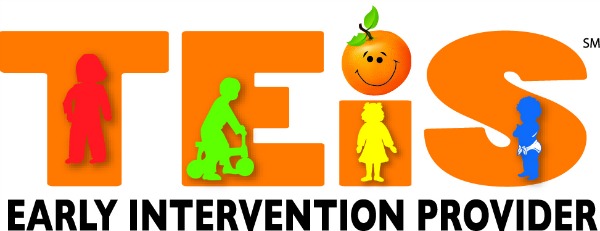
Being a Mom is the toughest job there is and being a new Mom is definitely a whole new learning experience. You are bombarded with all sorts of information from your own Mom or Grandmother, you’ve read countless books or Googled articles on pregnancy and child rearing, and you’ve received the advice of countless well-meaning friends and your own physician. You’re all set for this journey, right?

Most new Mom’s don’t have a pediatric therapist to consult if they have questions about their baby’s development. So here are a few things that Early Intervention therapists feel all new Mom’s should know in order to help their baby develop to the best of his or her ability:
- The hospital staff and your physician stressed that your baby MUST sleep on his or her back right? And that is sound advice to prevent SIDS. However, did anyone mention that when your baby is awake and supervised that you should be encouraging her to get used to tummy time? Starting tummy time in the first 6 weeks while your baby is awake and supervised, is vitally important to your new baby’s head, neck and trunk development and is needed for later motor skills such as rolling, sitting and crawling. Start with a few minutes each day and build up your baby’s tolerance for tummy time play. You can lie on your back and place your baby on your chest facing you, carry your baby in a tummy down position, or place a small towel roll under your baby’s armpits to make tummy time more comfortable and easier for him to lift his head. The key to development of future motor skills is that your baby does not lie on her back during all of her awake periods (this means limiting time in bouncers, swings & car seats as well).
- Be vigilant to see if your baby prefers her left or right side. We want new babies to be symmetrical and be able to turn their heads freely to each side, and to use both arms and legs equally without showing preference for the left or right side. If your baby has a preference, he may develop a flat spot on the side of his head (plagiocephaly) and may also have tight neck muscles that prevent him from turning his head toward the other direction (torticollis). He may eventually begin to visually neglect his non-preferred side and not reach as much with that arm. You can prevent this by helping your baby to stay in midline (center) with his head and with (surprise!) introducing more tummy time and side-lying play to get the pressure off the back/side of his head.
- Did you know that your new baby can imitate you from the start by sticking out her tongue at you? Try it! Babies LEARN through modeling and imitation so the “sticking out the tongue game” is a fun face-to-face interaction that moms can do with their newborns.
- Your young baby prefers your face over any toys or other people’s faces. Your baby’s vision develops over time, but your new baby should be making eye contact with you within her first month of life and by the time she is around 4 months old she’ll be noticing more toys, more colors, smaller objects and things that appear farther away. You can play visual tracking games with your baby simply by holding her about 12” from your face and then moving your head to each side and upwards and downwards to see if she follows you.
- You should begin talking to and reading to your baby from birth. Sure, your baby may not talk or even coo back at you yet, but rest assured he’s taking in every word that you say. Talking, reading and singing to your new baby are great precursors for later speech and language development.
- Your new baby is not yet able to hold rattles, but his hands should be in a loosely fisted position when not grasping (new babies have a grasp reflex). You can encourage your baby to bring his hand to his mouth to self-soothe, and no, this doesn’t mean he’ll automatically become a thumb sucker.
- Your baby should not choke, gag, lose a lot of liquid or projectile vomit during or after feedings nor should your baby’s feedings take more than 20-30 minutes. Some newborns are tongue-tied, which makes feeding difficult, and some have reflux, so do check with your pediatrician as soon as you experience any feeding challenges.

If you have any concerns about things your baby is doing or not doing please contact TEIS Early Intervention. TEIS therapists work on motor skills, feeding, speech, vision, play skills, and monitor weight gain and formula/food intake and our free parent coaching services for children eligible through the federally funded early intervention system begin at birth!

Learn more :: Website // Instagram // Facebook // Twitter // Pinterest















